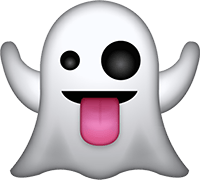Traditional Chinese Medicine: A Comprehensive Guide to Holistic Healing
Introduction
Traditional Chinese Medicine (TCM) is an ancient system of health and healing that has been practiced for thousands of years in China and across East Asia. With a holistic approach that views the body as an interconnected system, traditional chinese medicine offers a wide range of therapies and treatments designed to promote balance, harmony, and overall well-being. This article delves into the fundamental principles of TCM, its various modalities, and the benefits it offers to modern healthcare.
Principles of Traditional Chinese Medicine
At the core of TCM is the concept of Qi (pronounced "chee"), which refers to the vital life force that flows through the body. TCM believes that health is a state of balance and harmony between the body, mind, and environment. When Qi is flowing freely, a person experiences good health; when there are blockages or imbalances, illness may occur.
Yin and Yang
Another fundamental principle of TCM is the theory of Yin and Yang. This concept represents the duality of nature, where opposing forces complement and balance each other. Yin is associated with qualities such as darkness, coldness, and passivity, while Yang represents light, warmth, and activity. TCM practitioners assess an individual's health by examining the balance between Yin and Yang in their body, using this information to guide treatment.
The Five Elements
TCM also incorporates the Five Elements theory—Wood, Fire, Earth, Metal, and Water—which describes the natural cycles and relationships in the body and the environment. Each element corresponds to specific organs, emotions, and seasons, providing a framework for understanding how internal and external factors influence health.
Modalities of Traditional Chinese Medicine
TCM encompasses various therapeutic modalities, each with its unique techniques and benefits. The most prominent modalities include:
1. Acupuncture
Acupuncture is perhaps the most well-known aspect of TCM. It involves the insertion of fine needles into specific points on the body to stimulate Qi flow and restore balance. Acupuncture is used to treat various conditions, including pain, stress, digestive issues, and respiratory problems. Research has shown that acupuncture can be effective in alleviating chronic pain and promoting overall well-being.
2. Herbal Medicine
Herbal medicine is a cornerstone of TCM, involving the use of plant-based substances to create customized herbal formulas tailored to individual needs. TCM practitioners prescribe herbs to address specific health concerns, enhance vitality, and support the body's natural healing processes. Common herbs include ginseng, ginger, licorice root, and goji berries, each with unique properties and benefits.
3. Cupping Therapy
Cupping therapy involves placing cups on the skin to create suction, promoting blood flow and alleviating muscle tension. This therapy is often used for pain relief, respiratory conditions, and detoxification. Cupping has gained popularity among athletes for its ability to enhance recovery and performance.
4. Tuina (Chinese Massage)
Tuina is a form of therapeutic massage that combines acupressure techniques with manipulative movements to promote Qi flow, relieve muscle tension, and improve circulation. Tuina is effective for various musculoskeletal issues, stress relief, and overall relaxation.
5. Dietary Therapy
Dietary therapy in TCM emphasizes the importance of nutrition in maintaining health and preventing disease. Practitioners provide personalized dietary recommendations based on an individual's constitution and health condition. Foods are categorized by their energetic qualities (Yin, Yang, hot, cold) and their effects on the body, promoting a balanced diet for optimal health.
Benefits of Traditional Chinese Medicine
TCM offers numerous benefits that make it a valuable complement to modern medicine:
1. Holistic Approach
TCM treats the whole person rather than just the symptoms of a disease. This holistic perspective allows practitioners to address the root causes of health issues and promote overall well-being.
2. Natural Healing
TCM therapies utilize natural methods, such as acupuncture, herbal medicine, and dietary changes, to support the body's innate healing abilities without the side effects often associated with pharmaceuticals.
3. Personalized Treatment
TCM emphasizes individualized care, with practitioners tailoring treatments based on a person's unique constitution, health history, and lifestyle. This personalized approach enhances the effectiveness of treatments.
4. Preventive Care
TCM places a strong emphasis on prevention and maintaining balance. By promoting healthy lifestyle choices and early intervention, TCM can help prevent the onset of illness and support long-term health.
5. Complementary to Modern Medicine
TCM can work alongside conventional medical treatments, providing complementary therapies that enhance recovery and improve overall health outcomes. Many patients find that combining TCM with Western medicine results in better management of chronic conditions and improved quality of life.
Conclusion
Traditional Chinese Medicine is a time-honored system of health and healing that offers valuable insights and effective therapies for promoting balance and well-being. With its holistic approach, focus on prevention, and emphasis on individualized care, TCM continues to be a relevant and essential part of modern healthcare. Whether you are seeking relief from a specific condition or aiming to enhance your overall health, exploring the benefits of TCM can be a transformative journey toward optimal well-being.
